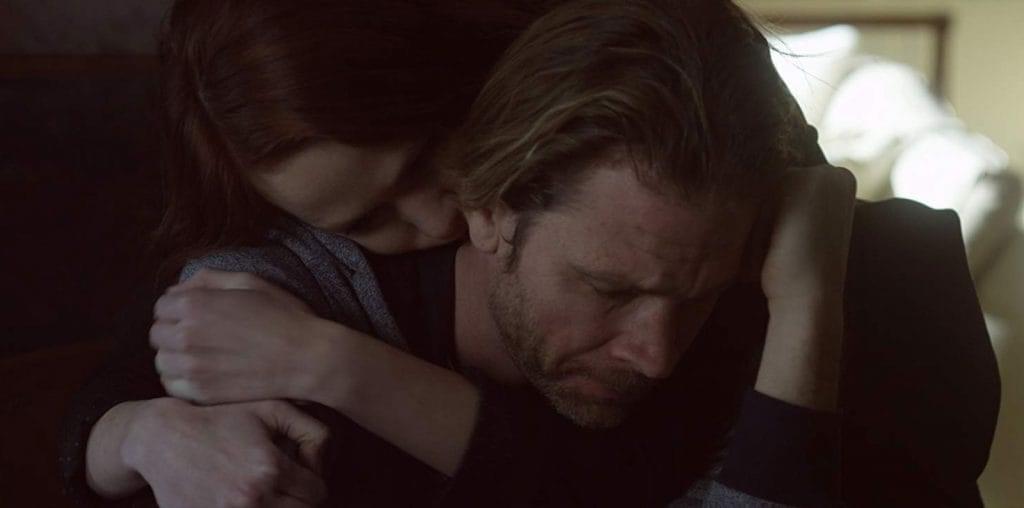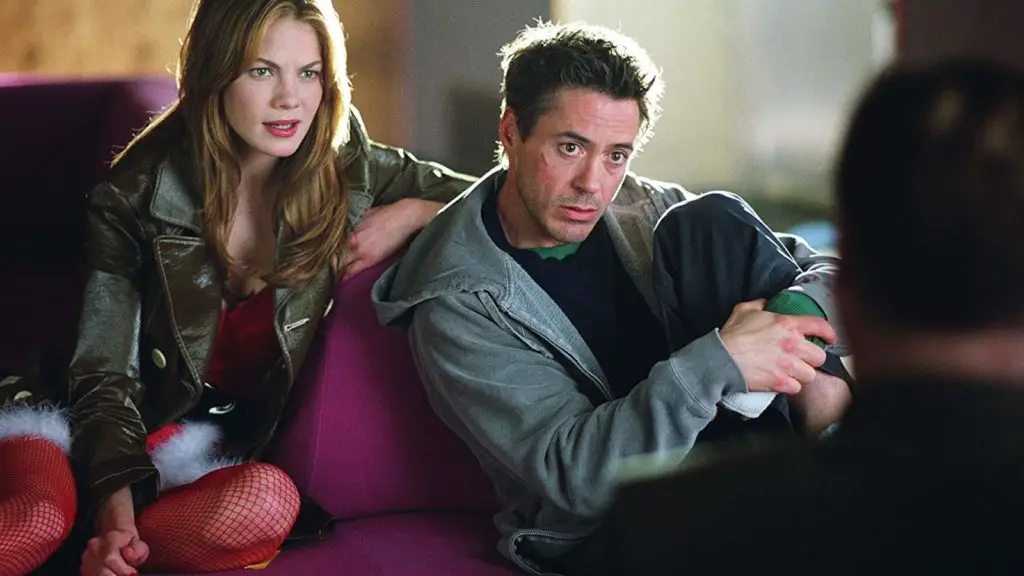
While Aishwarya Rai is busy announcing herself in the West as a movie star to be reckoned with in “Bride & Prejudice,” back home in India, she continues to prove her true acting mettle by gamely taking on challenging roles in sometimes uncommercial projects. “Raincoat” marks her biggest departure to date, and the indifferent reaction at both the Indian and overseas box office reflect that; in fact, the film’s theatrical distributor for the Non-Resident Indian market in North America basically gave the film an unusually tiny release, dumping it only on a pair of screens in San Jose, California and New Jersey this past Christmas Eve. While this somber, nuanced, talky, song-and-dance-free drama is just about the across-the-board antithesis of Indian popular filmmaking, it’s everything a serious, art-minded cinephile would savor: a moody, expertly-acted and -directed meditation on the realities of love, loneliness, and life.
The man at the helm of “Raincoat” is writer-director Rituparno Ghosh, who previously directed Rai in the 2003 film festival favorite, the Bengali-language “A Passion Play: Chokher Bali.” As in that film, the de-glammed Rai in “Raincoat” is a far cry from the one we’re used to seeing in Bollywood musical extravaganzas, but here even more startlingly so. Stripped along with her makeup is any trace of her famous glow, whether through hope, general contentment, or any other source. From the lips of Rai’s housewife Neeru spin ornately woven tales of lavish luxury, but her sullen eyes and voice tell another, less fairy tale-ready story. As the truth behind “the game of words” (as the tagline goes) slowly, subtly, reluctantly reveals itself as the film progresses, Rai’s beautifully shaded emotional transformation is heartbreaking. Neeru’s fellow player in this game is long-lost love Manoj (Ajay Devgan), who shows up on her doorstep one rainy afternoon some six years after their last meeting, which occurred just prior to her wedding. As with Neeru, the intervening years have taken their brutal toll on Manoj, and as the two catch up on each other’s lives, the false armor of inviting words both conceal and ultimately confirm the greatest truth shared between them.
And that truth, of course, is love. Through brief but carefully placed flashbacks, we witness those years-ago final moments between Manoj and Neeru, and while one could understandably say that these scenes and, hence, the pair’s past relationship are underwritten, Ghosh understands that nothing can speak more about the relationship than what the actors bring to it. This marks the fourth time Devgan and Rai have shared the screen, and here they display the same poignantly understated rapport they lent their first and most celebrated collaboration, 1999’s “Hum Dil De Chuke Sanam.” It’s not a playful chemistry nor a classically smoldering one, but something more of a consistently-felt, low-key burn that then flares up for some piercing moments. Who knew a line as seemingly innocuous as “I’ve applied for a car loan” could carry with it all the innocent hope and resigned disappointment of love and life itself?
Devgan’s quietly wrenching performance can be described in the same way. While the presence of Rai certainly commands more attention to this small, delicate project than it otherwise would–and she more than justifies it with her performance–Devgan is onscreen from beginning to end, and he doesn’t squander the showcase. Emotional desperation is paired with the brooding intensity Devgan has finely honed in his long line of tough guy roles, clearly delineating that this is a man who is not so much a passive victim of life, but one actively defeated by it. This one encounter with Neeru is but another noble, possibly futile attempt to fight against circumstance, however hopeless the chances of true redemption.
As powerful as his leads and the few supporting players are, the one who ends up dominating “Raincoat” is Ghosh, who is in full command of his filmmaking gifts from the opening title sequence. Expertly cut to a haunting love song, beautifully composed by Debajyoti Mishra, movingly performed by Shubha Mudgal, and featuring poetic lyrics by Ghosh himself, the sequence not only traces Manoj’s journey from his small village home to the big city of Calcutta but sums up the entire emotional journey of the film. Such attention to detail is reflected in every aspect of the production, from the moody photography to the graceful editing to, most impressively, the production design. Most of the film is devoted to long conversations between Manoj and Neeru in the living room of her house, which is an enigmatic triumph; cluttered with furniture, often lit only by candlelight, it can alternately be read as romantic, run-down, spacious (Ghosh and cinematography get a bit of mileage out of the many angles the space offers them), and suffocating.
If Ghosh’s direction places “Raincoat” under the skin, then his writing makes it linger there. The film is remarkably dialogue-heavy, but the words feel and flow naturally and beautifully illuminate the layers of the characters. And while a raincoat–which Manoj borrows from his best friend’s wife–literally plays a prominent role in the film, the title has more powerful thematic significance. By film’s end, one can conclude that in the monsoon storms of life and love, a flimsy raincoat is perhaps all anyone can realistically hope for, but it is also the most beautiful and valuable gift anyone can give to another.

